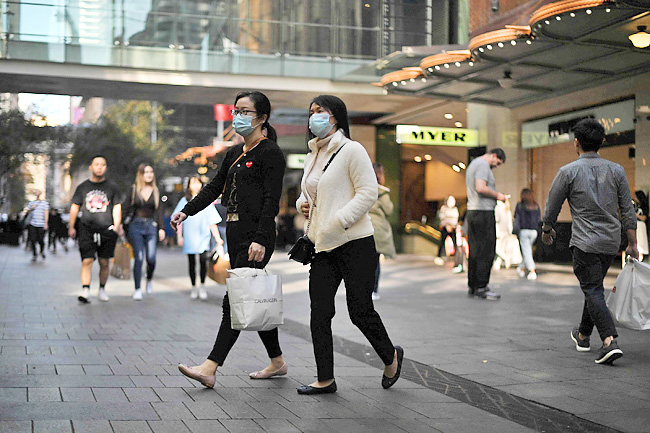SYDNEY (XINHUA) – Australians are financially better off now than two years ago, before the COVID-19 pandemic fully hit, according to a report released on Friday.
The study, compiled by the Melbourne Institute of Applied Economic and Social Research (MIAESR), a research institute under the University of Melbourne and the Commonwealth Bank of Australia (CBA), noted that the median savings balance of households in December 2021 was 42 per cent higher than December 2019.
“There are more people doing better and less people doing worse compared to before the pandemic started,” said MIAESR Professor John de New.
“These increased savings represent Australians hedging against uncertainties – uncertainties related to COVID-19, as well as rising inflation and returns on savings,” de New said.
The latest Australian Consumer Financial Wellbeing report from the CBA analysed the transactional data of more than five million CBA customers to better understand the current financial wellbeing of Australians.

“Based on that data there have been high levels of financial wellbeing during the pandemic, with the latest research showing people are continuing to fare well overall,” de New said. CBA Executive Manager Financial Wellbeing Ben Grauer attributed the prosperous outcome to “a range of macro and micro economic factors, such as government support, and the ability to access financial support, such as deferring loans and small businesses accessing reduced lending rates”.
Despite the overall rosey prognosis, the latest savings figures were actually down from their heights of March 2021.
“The data shows Australians started to spend more towards the second half of the year, likely due to pent up demand from earlier lockdowns,” de New said.
“While this contributed to the slight year-on-year decline in financial wellbeing, the increased spending speaks to the high consumer confidence reported at the end of last year,” he said.
He also noted that the data was not consistent throughout the nation with the state of New South Wales (NSW) and the Australian Capital Territory (ACT) reversing that savings decline in the final months of 2021.
“This is likely due to forced savings and precautionary savings directly related to the COVID-19 Delta variant outbreak, predominantly in NSW (and by geographical proximity, ACT) at that time,” de New said.



















































